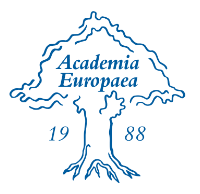Thematic Missions
Methodology of Science Education
Co-Chairs: Professor Csaba Pléh and Dr Eszter Gselmann
Methodology of science education plan for 2021
The declining popularity of science careers and the often poor understanding and use of complex scientific knowledge are global trends in the digital age, triggered by the exponential growth of scientific information, growing cross-sectoral income inequalities, new communication channels, the social media and many other factors. To address this challenge there is a need to develop and promote new methodologies in science education to help the transfer of scientific knowledge in all stages of education from primary schools to university science curricula. The challenge of e-learning presented by the corona virus epidemic illustrates how important the development of better channels for the exchange of teaching methods can be.
The on-going programme of the Hungarian Academy of Sciences in science education methodology will serve as the basis for the development of the activities of the AE hub under this thematic mission, which in turn offers the possibility to widen the scope of the programme by incorporating the latest advances in education methodology on a European level. It is expected that AE hubs, often hosted by leading European universities themselves, and AE members closely involved in science education will be keen to contribute to the success of this thematic mission. The shared knowledge and European experience may also contribute to the revision of outdated policy guidelines in science education. In what follows we shortly summarize in an enumerated way our plans for the first one or two years. After that some more detailed description and justification and also explanation follows.
Main intended activities and their timeline
1. Fact finding (Period planned for: January−April 2021)
Email survey with the collaborative national academies and with the AE hubs about
- data on science education in national educational programs. Ages, subjects, weekly hours.
- data on science ed innovative programs. Topics, ages, methods.
2. Analysis of data
- Creating possible contact network. Finding contacts between interested parties.
- A list of possible actions for the forthcoming 4 years.
3. Proposed initial workshops (with 20-40 virtual participants)
- Impact of the SARS-CoV-2 pandemic on public image of science and science education (Planned for May 2021)
- convergence and alternative science education routes in Europe (Planned for October 2021)
This latter workshop would also impact the agenda for the forthcoming 3 years.
As the world becomes more inter-connected and globally competitive, new economic opportunities often come hand in hand with complex societal challenges. Therefore, we must engage all of society in research and innovation processes. We must provide the space for open, inclusive and informed discussions on the research and technology decisions that will impact citizens’ lives.
The need naturally arises to better understand and communicate, and for the transformative connection between science, innovation and society. For the younger generation aspiring to their careers in science, technology, engineering and mathematics we need to bring emerging technologies and markets closer to the classroom, we need to ignite their imagination. We need to engage young people at an early age. Responsible research and innovation should, by its very definition, get everyone involved.
As one thematic mission of the freshly established AE Budapest Hub, we have to support schools, teachers, teacher educators and students of all ages to adopt an inquiry approach to science education as part of the core framework of science education for all. Furthermore, we also have to address socio-economic, gender and cultural inequalities in order to widen access and provide everyone with the opportunities to pursue excellence in learning and learning outcomes. There are some prominent organizations where already excellent and important work had been done. Therefore, first of all, we would like make connection with them to get to know their work and to search for possible synergies with them. Mainly this is item 1. in the above list. We hope that this point could make a direct link with item 3. that is about planned workshops organized by this thematic mission. Obviously, this is possible only after completing item 2., which is about the analysis of the data, stemming from item 1. The last item is justified by the need of collaboration between formal, non-formal and informal educational providers, enterprise and civil society should be enhanced to ensure relevant and meaningful engagement of all societal actors with science and increase uptake of science studies and science-based careers to improve employability and competitiveness. We have to encourage `open schooling’ where schools, in cooperation with other stakeholders, become an agent of community well-being Furthermore, we have to encourage families to become real partners in school life and activities. Finally, we also have to motivate professionals from enterprise, civil and wider society to be actively involved in bringing real-life projects into the classroom.


